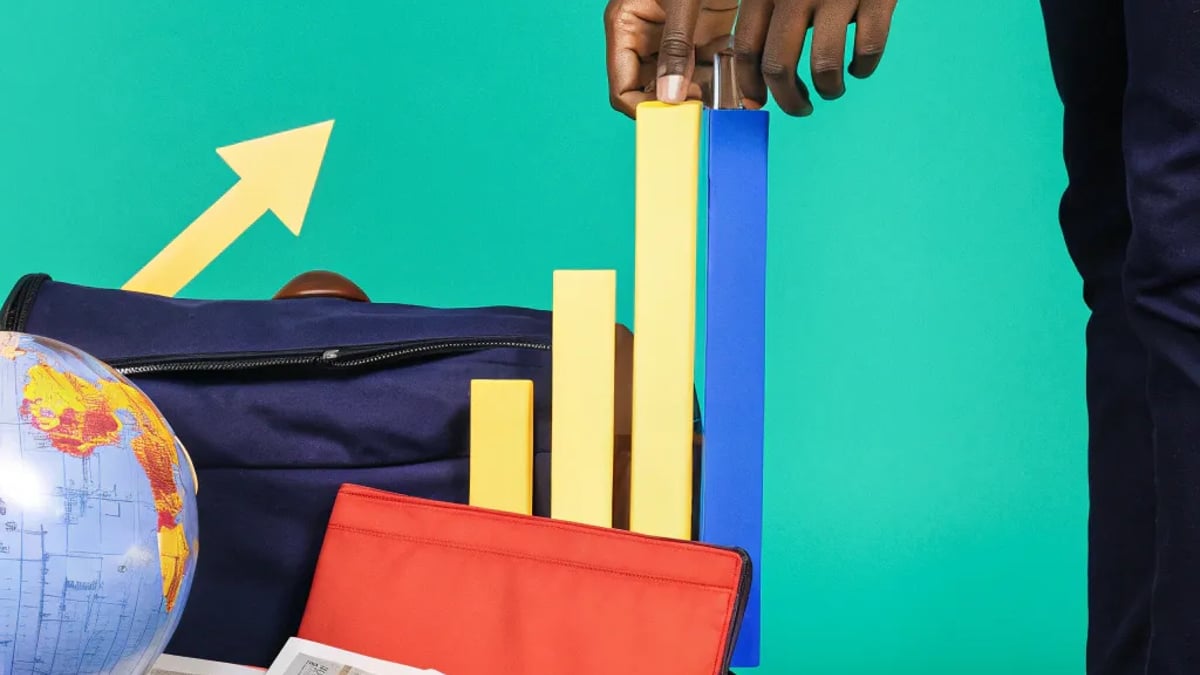
Moving to a different country opens up exciting opportunities but also presents unique financial challenges. When I relocated from the US to Germany three years ago, I quickly discovered that financial stability abroad requires more than just converting currency and opening a new bank account. Here's my winding path to finding solid financial ground in a foreign land.
The Initial Financial Shock
The first few months after landing in Berlin were a financial blur. Despite months of planning, I wasn't fully prepared for how different money management would be overseas.
My carefully crafted budget fell apart within weeks. Rental deposits in Germany are typically three months' rent—not the one month I was accustomed to in Chicago. This immediately drained my emergency fund more than anticipated. Then came the unexpected "kitchen tax" (many German apartments come without kitchen appliances), residence permit fees, and mandatory health insurance payments that kicked in before my first paycheck arrived.
"Moving overseas often requires a financial cushion of 3-6 months of expenses, not the typical 3-month emergency fund recommended for domestic relocations," notes Sarah Hines from International Relocation Advisory, a sentiment I wish I'd understood before my move.

Banking Hurdles and Credit History Reset
One of the most frustrating aspects was starting from zero with my credit history. My excellent US credit score meant absolutely nothing in Germany.
I remember walking into Deutsche Bank with confidence, expecting to open an account and get a credit card immediately. Instead, I was offered a basic checking account with a debit card and told that credit products would only be available after establishing local financial history.
Without credit history, even getting a phone contract required a significant deposit. Landlords were hesitant to rent to me without German financial references, creating a challenging chicken-and-egg situation.
Building a New Financial Foundation
To rebuild my financial stability, I took several deliberate steps:
- I opened a local bank account immediately and set up automatic transfers to create a visible pattern of savings
- Registered with the tax authorities to ensure proper documentation
- Found a tax advisor familiar with expatriate situations to navigate the US-German tax treaty
According to the World Bank's Financial Inclusion Overview, "Access to transaction accounts serves as a gateway to other financial services." This proved true in my case—once I established a solid banking relationship, other financial doors began to open.
How Did I Manage the Dual-Country Tax Situation?
As a US citizen, I faced the unique challenge of filing taxes in both countries. The US taxes its citizens on worldwide income, while Germany taxes residents on income earned within its borders.
This created a complex situation where I needed to:
- File US taxes annually, claiming Foreign Earned Income Exclusion
- File German tax returns as a resident
- Track foreign bank account reporting requirements
- Navigate retirement account complications
I spent hours researching the Foreign Account Tax Compliance Act (FATCA) and eventually hired a specialized accountant, which was expensive but worth every euro to avoid costly mistakes.
Creating a Sustainable Financial System
By my second year abroad, I'd established a more sustainable financial approach:
I maintained bank accounts in both countries—using TransferWise (now Wise) to move money between them at favorable rates. My German credit history had developed enough to qualify for a basic credit card, and I'd adjusted my retirement strategy to accommodate the international situation.
The pandemic hit just as I was finding my financial footing, creating new challenges. The silver lining was that it accelerated my emergency fund rebuilding, as lockdowns reduced my expenses dramatically.
Lessons Learned on My Journey
Looking back, my financial stability journey taught me several valuable lessons:
- Research the specific financial system of your destination country before moving
- Budget for a larger-than-expected initial outlay
- Maintain financial connections in your home country when possible
- Find tax expertise specific to expatriate situations early
- Be patient with rebuilding credit and financial reputation
As the International Monetary Fund notes, financial stability is a cornerstone of overall economic well-being. On a personal level, I've found this to be profoundly true—my quality of life improved significantly once I established financial stability in my new home.
Disclaimer: This article reflects my personal experience moving abroad and is for informational purposes only. It should not be considered financial advice. Financial regulations, tax treaties, and banking systems vary by country and change over time. Consult with financial and tax professionals familiar with both your home and destination countries before making decisions.
Tags

About Elliot J. Branson the Author
Elliot J. Branson is a seasoned financial analyst with over two decades of experience guiding individuals through their investment journeys. His expertise lies in creating personalized strategies to help investors navigate volatile markets and achieve long-term financial success.
Recommended Articles
Mechanics Recommend These 6 Cars That Rarely Need Repairs
Discover the top 6 recommended cars that rarely need repairs, ensuring reliability and peace of mind for every driver.
Ease Morning Stiffness With This 60-Second Movement Trick
Ease morning stiffness with a simple 60-second movement trick to improve flexibility and start your day right. Perfect for all ages.
8 Gadgets From the 90s and 2000s Worth a Fortune Today
Explore 8 nostalgic gadgets from the 90s and 2000s that are now surprisingly valuable collectibles worth digging out of your attic.
First Look at the 2026 Hyundai H1 Family Van
Explore the innovative 2026 Hyundai H1 Family Van, offering spacious design, advanced technology, and a commitment to sustainability for modern families.
2026 Nissan Navara: Rugged Power Meets New Tech
Discover the 2026 Nissan Navara, blending rugged off-road capability with advanced technology and modern design for versatile performance.




